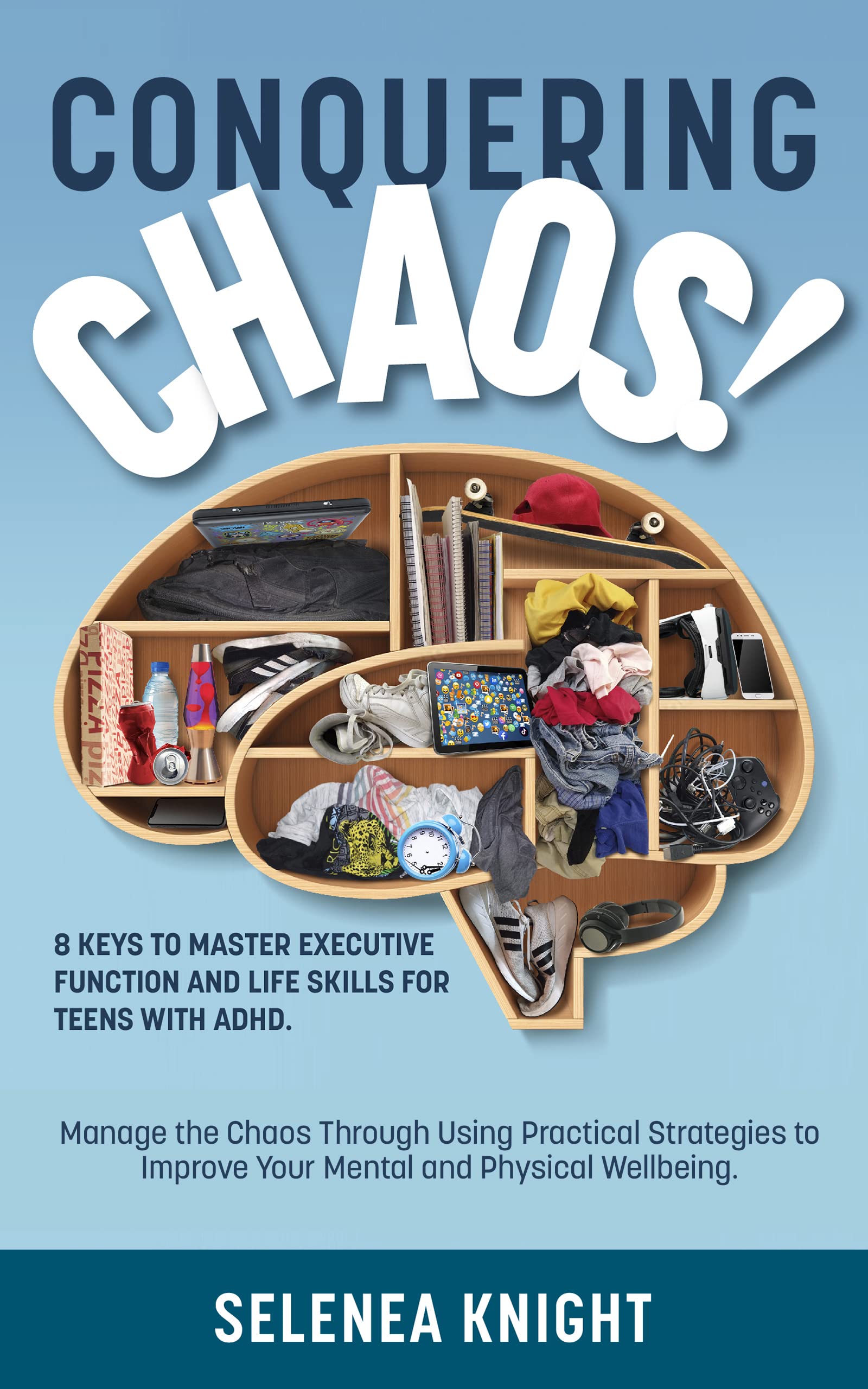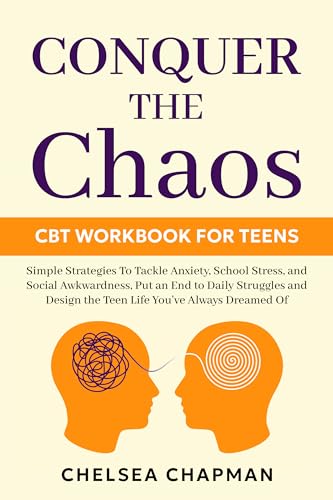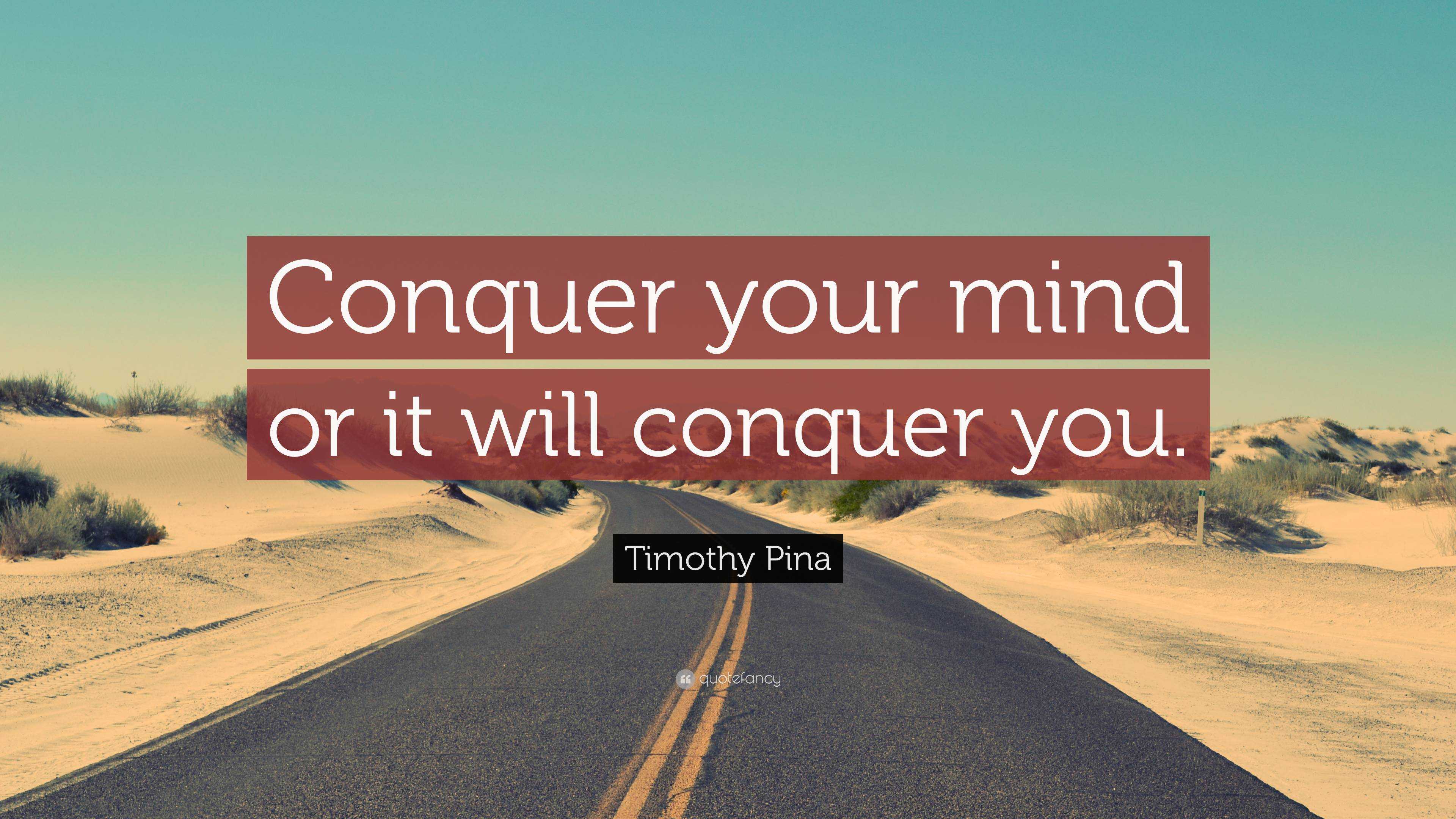Conquering The Chaos In Your Mind

Imagine waking up, not to the gentle chirping of birds, but to a cacophony of internal voices. Thoughts race like runaway trains, anxieties buzz like persistent mosquitoes, and the simple act of choosing what to have for breakfast feels like navigating a complex geopolitical landscape. This, for many, is the daily reality of living with a mind in constant turmoil.
But there is hope. This article explores strategies and insights for conquering the chaos in your mind, offering practical tools and a compassionate understanding for those seeking inner peace and mental clarity.
Understanding the Inner Storm
The relentless barrage of thoughts and emotions that characterizes a chaotic mind isn't a new phenomenon. Throughout history, philosophers, spiritual leaders, and now, neuroscientists, have sought to understand and alleviate this internal struggle.
Often, this chaos stems from a combination of factors, including modern life's demands, unresolved past experiences, and even our own internal dialogue. Stress, amplified by constant connectivity and societal pressures, can significantly contribute to mental disarray.
The Neuroscience of a Busy Mind
Neuroscience offers a glimpse into the biological underpinnings of mental chaos. Studies using fMRI technology have shown that during periods of high stress or anxiety, the amygdala, the brain's emotional center, becomes hyperactive.
This hyperactivity can override the prefrontal cortex, the area responsible for rational thought and decision-making, leading to impulsive reactions and difficulty focusing.
According to a study published in the journal Nature Neuroscience, chronic stress can even alter the brain's structure, shrinking the prefrontal cortex and enlarging the amygdala, further exacerbating the problem.
Strategies for Taming the Turbulence
Fortunately, there are evidence-based strategies for managing and even reducing the chaos within. These approaches range from ancient practices like mindfulness to modern cognitive therapies.
Mindfulness Meditation: Finding Stillness in the Storm
Mindfulness meditation, a practice rooted in Buddhist tradition, involves paying attention to the present moment without judgment. This simple act can be profoundly transformative.
By focusing on the breath, bodily sensations, or external stimuli, we can gently redirect our attention away from the swirling thoughts and emotions that fuel the chaos. Over time, regular mindfulness practice can train the brain to become more resilient to distractions and better able to regulate emotions.
Numerous studies have demonstrated the benefits of mindfulness meditation for reducing stress, anxiety, and depression. A meta-analysis published in the Journal of Consulting and Clinical Psychology found that mindfulness-based interventions were effective in treating a range of psychological disorders.
Cognitive Behavioral Therapy (CBT): Challenging Negative Thoughts
CBT is a therapeutic approach that focuses on identifying and changing negative thought patterns and behaviors. It's based on the premise that our thoughts, feelings, and behaviors are interconnected.
By learning to recognize and challenge distorted or irrational thoughts, we can break free from the cycle of negativity that contributes to mental chaos. For example, someone who frequently experiences catastrophic thinking ("Everything is going to go wrong!") can learn to reframe their thoughts in a more realistic and balanced way.
Aaron Beck, considered the father of CBT, emphasized the importance of identifying "automatic thoughts" – those immediate, unbidden thoughts that often underlie our emotional reactions.
The Power of Movement: Exercise as a Mental Antidote
Physical activity is not only beneficial for our physical health but also for our mental well-being. Exercise releases endorphins, which have mood-boosting effects, and can also help to reduce stress and anxiety.
A brisk walk, a yoga session, or even dancing to your favorite music can provide a much-needed break from the mental clutter. Regular exercise has been shown to improve cognitive function, including attention and memory, making it easier to focus and manage thoughts.
The American Psychological Association highlights the significant role of exercise in managing stress and improving overall mental health.
Creating a Calm Oasis: Environment Matters
Our surroundings can have a significant impact on our mental state. A cluttered, chaotic environment can exacerbate mental chaos, while a calm, organized space can promote a sense of peace and order.
Taking the time to declutter your home or workspace can be a surprisingly effective way to declutter your mind. Creating a dedicated space for relaxation, such as a reading nook or meditation corner, can also provide a refuge from the external chaos of the world.
Simple changes, such as adding plants to your home or using calming colors in your decor, can create a more soothing and restorative environment.
Seeking Support: You Are Not Alone
Conquering the chaos in your mind is often a journey best undertaken with support. Talking to a therapist, counselor, or trusted friend can provide valuable insights and coping strategies.
Support groups and online communities can also offer a sense of connection and validation, reminding you that you are not alone in your struggles. The National Alliance on Mental Illness (NAMI) provides resources and support for individuals and families affected by mental illness.
Remember, seeking help is a sign of strength, not weakness. It demonstrates a commitment to your well-being and a willingness to take proactive steps towards healing.
A Journey, Not a Destination
It's important to acknowledge that conquering the chaos in your mind is not a one-time fix but an ongoing process. There will be days when the thoughts seem overwhelming, and the anxieties feel insurmountable.
On those days, be gentle with yourself. Remember that setbacks are a normal part of the journey. The key is to keep practicing the strategies that work for you and to remain committed to your well-being.
By cultivating self-compassion, practicing mindfulness, and seeking support when needed, you can gradually transform the chaos within into a sense of inner peace and mental clarity. The path to a calmer mind is within reach.


















